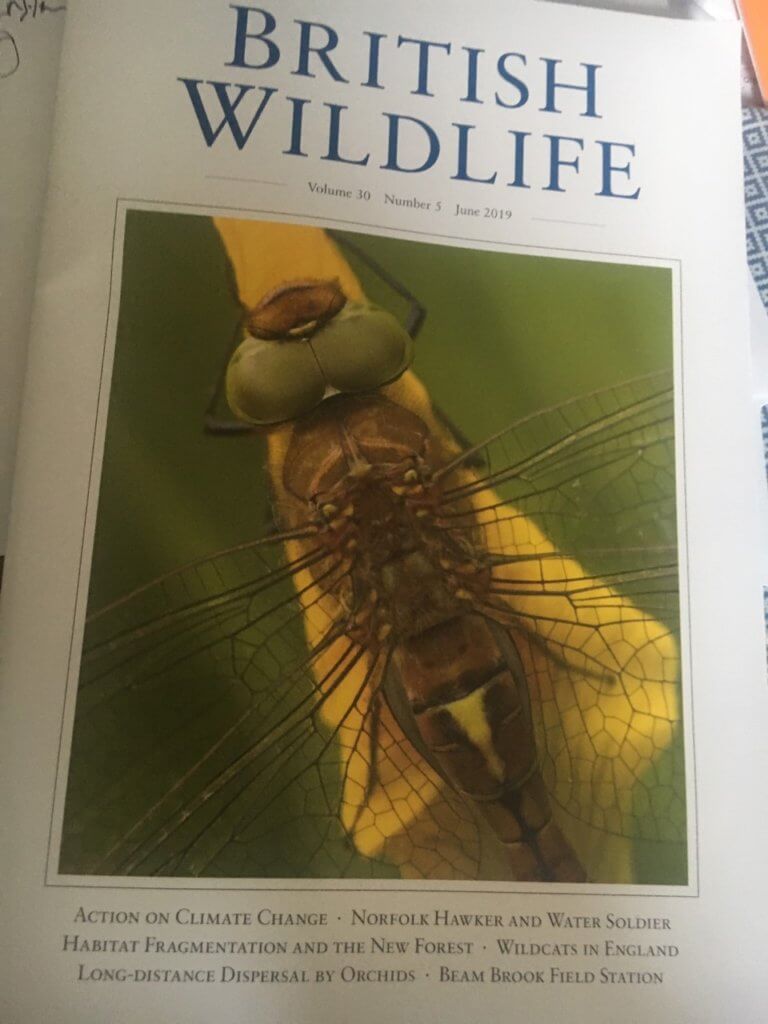
The June issue of British Wildlife contains the usual mixture of news, comment, research and analysis. As always it’s a fascinating mixture.
I turned to Derek Gow’s and Peter Cooper’s article on Wildcats in England first – fascinating stuff.
British Wildlife now has a group of regular columnists and here are some quotes from their pieces:
I have grown accustomed to the belief in media circles that anything to do with wildlife is trivial.
My inner witch wanted to gather the petals and decoct from them a potent brew, filled with dark power.
I am no arachnophobe, but this spider tangles with my mind.
Bord na Mona is running out of peat at the same time as its economic mindset is running out of road.
…even the loss of a million species will make no material difference to anybody.
Quotes from Padraic Fogarty, Amy- Jane Beer, ‘Twitcher in the Swamp’, Simon Barnes and Brett Westwood though not necessarily in that order (in fact, not in that order)
There is also a comment piece by myself on Action on Climate Change where I contrast the aims of Extinction Rebellion and those of the Committee on Climate Change and then touch on the consequences of what a serious attempt to tackle climate change would look like for wildlife.
I wish British Wildlife came out monthly!
[registration_form]
Surprised you refer to “Climate change”. How about referring to it as “climate emergency”?
I liked you piece on climate change and it raised some very interesting issues in my mind. I wonder how many readers of this blog realise that 49% of British energy is used for heating ? Effectively, its the only game in town and involves very little electricity – mainly gas which seems in many people’s minds to be an honorary renewable. It isn’t.
And, your house – we can put a man on the moon, there’s huge enthusiasm for carbon capture which will be hugely technical and no doubt hugely profitable for some of the richest people – I suspect we could insulate your house if we wanted to. We could probably halve the energy used for heat in the UK – that alone takes you 25% of the way to zero, and is twice total emissions from transport.
What also struck me was that this was an article about Climate Change. Tommorrow someone will be going on about air pollution, yesterday Southern Water’s shocking record. in 2007 David Milliband described the sectoral approach to land use as a ‘zero
sum game’ – there’d never be enough space to do each thing one at a time – there are so many synergies where you can gain far more by optimising a range of objectives, but its complex but we have to master it – the FC plan linked to Flows 2 is a pretty good example of how to do it.